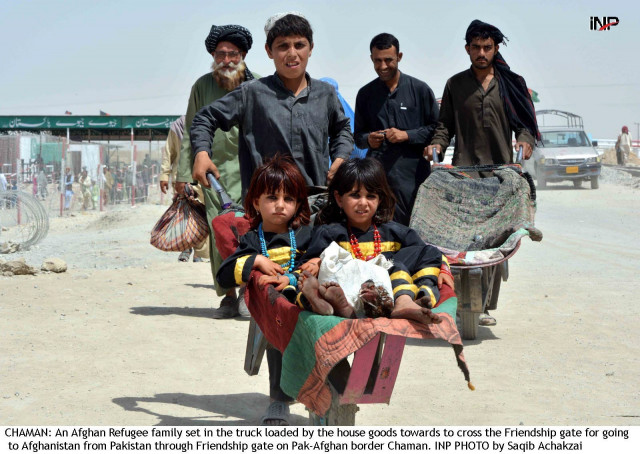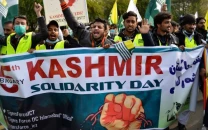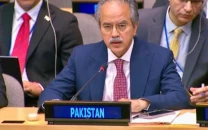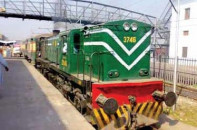World abandoned Pakistan in dealing with Afghan refugees
The current refugee crisis was arguably the worst humanitarian crisis since the Second World War

The current refugee crisis was arguably the worst humanitarian crisis since the Second World War. PHOTO: INP
This was stated by Minister for States and Frontier Regions (SAFRON) Lt Gen (retired) Abdul Qadir Baloch during a two-day conference on “Refugee Crises: Lessons from Pakistan and beyond”, organised by the National University of Sciences and Technology (NUST) in collaboration with the Hans Seidel Foundation.
'600,000 illegal Afghan refugees living in Pakistan'
“The international community only pays us half a dollar per year for education and a dollar per year per head for Afghan refugees,” Baloch lamented, as he went on to detail the sacrifices Pakistan has had to make to take care of the nearly 1.5 million Afghan refugees which the country has been hosting for over 30 years.
“The international community was spending much more on Syrian refugees than the Afghan refugees,” the SAFRON minister said, adding that the world had only started taking note of Afghan refugees once they started fleeing towards Europe.
Earlier, NUST Rector Lt Gen (Retired) Naweed Zaman said that in the backdrop of the recent refugee crisis in Europe, there was an increasing realisation that this was an issue which deserved greater attention.

Though different parts of the world have experienced and shared the pain of losing their population to refugee camps while welcoming millions of refugees in the past, the current refugee crisis was arguably the worst humanitarian crisis since the Second World War.
However, the recent surge of refugees had jolted the socio-political landscape of host countries, particularly in Europe, drawing a collective response in the form of ‘securitisation’ of migration.
Afghan refugees in Pakistan feel heat of rising regional tensions
With policy planners across the world still struggling to grapple with issues which require a redesign of international and national policies to manage this humanitarian crisis, Lt Gen Zaman said Pakistan had a vast and valuable experience in this regard from hosting millions of Afghans over the years.
He said that this vast and unique knowledge, empirical data which was scattered in official files should be collected and compiled.
Later Hans Seidel Foundation Resident Representative Kristof Duwaerts said that Afghanistan had recently formed a high-level executive committee to manage displacement and return of refugees (DiREC). It would prioritise assistance needs and reintegration prospects of internally displaced people and returnees.
Published in The Express Tribune, July 12th, 2017.



















COMMENTS
Comments are moderated and generally will be posted if they are on-topic and not abusive.
For more information, please see our Comments FAQ